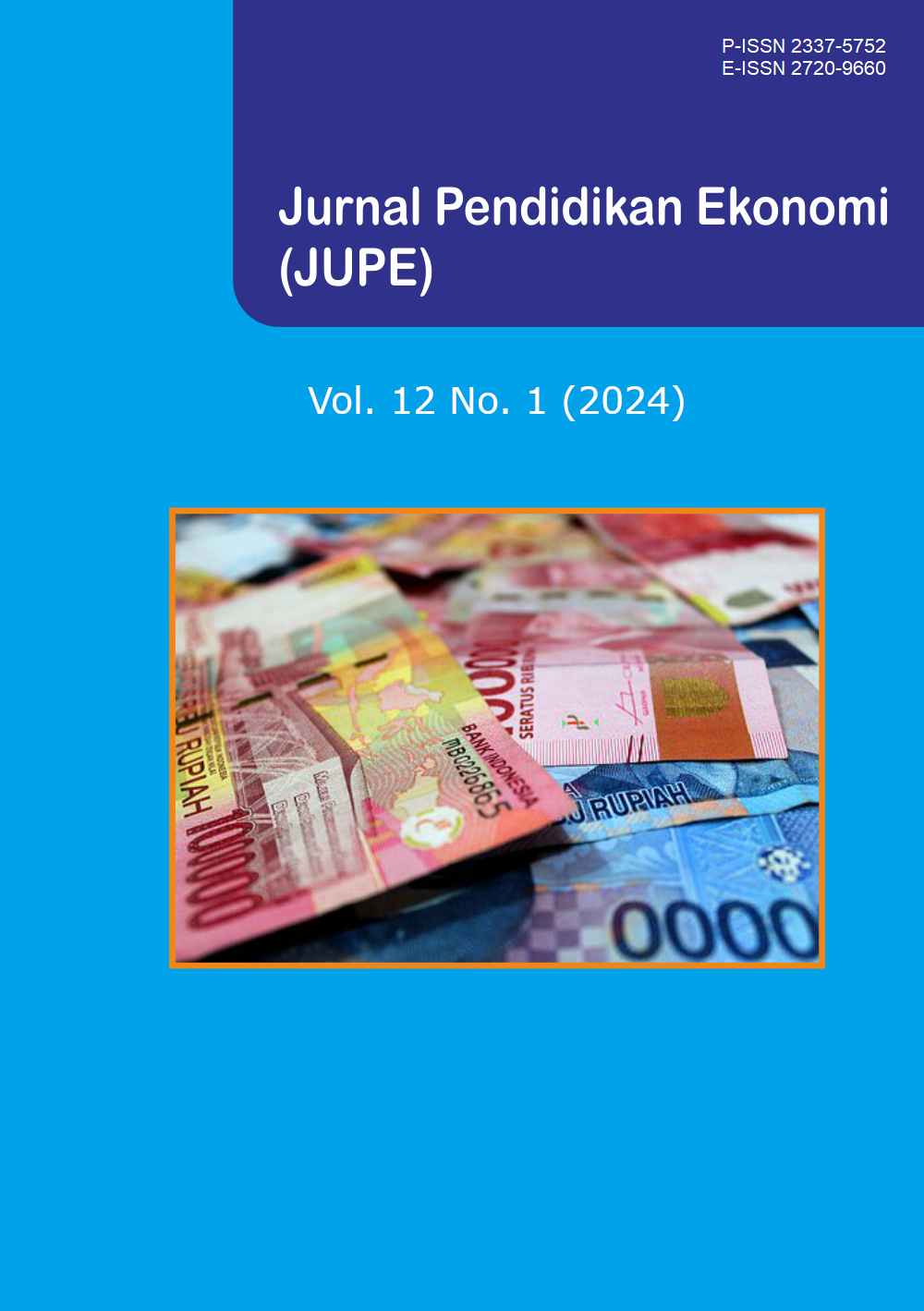Pengaruh Pengenalan Lapangan Persekolahan (PLP) Terhadap Soft Skills Dengan Dimoderasi Oleh Jenis Kelamin Pada Mahasiswa Calon Guru
DOI:
https://doi.org/10.26740/jupe.v12n1.p16-24Keywords:
School Field Introduction, Soft skills, GenderAbstract
The research aims to determine the effect of Introduction to the Schooling Field (PLP) on soft skills moderated by gender in students of the Office Administration Education, Accounting Education, and Economic Education Study Program at UNS involved 183 students from the 2018-2019 class who had taken part in PLP activities. The sampling technique in this research used proportional random sampling with data collection through questionnaires. The sub-group moderation method is used as a data analysis technique. The results obtained in this research are: (1) There is a positive and significant influence between PLP and soft skills. (2) Gender does not strengthen the influence of PLP on soft skills. The research results show that the PLP's ability to influence soft skills is very weak, this is because there is a gap between the soft skills competency score and the final PLP score.
Downloads
Downloads
Published
How to Cite
Issue
Section
License
Copyright
- Authors retain copyright and grant the journal right of first publication with the work simultaneously licensed under a Creative Commons Attribution License that allows others to share the work with an acknowledgment of the work's authorship and initial publication in this journal.
 Abstract views: 311
,
Abstract views: 311
, PDF Downloads: 403
PDF Downloads: 403











